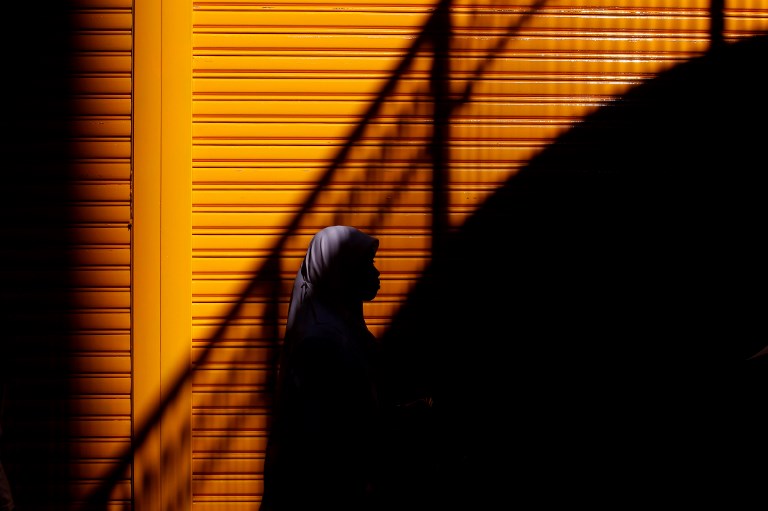Indonesian maids working in Hong Kong are being radicalized by extremists from the Islamic State group, a security think-tank said in a report today.
Around 150,000 of the city’s army of domestic helpers are from Indonesia, the world’s most populous Muslim-majority country.
Against a backdrop of growing religious conservatism at home, a small number of militant maids has emerged, according to a report from the Jakarta-based Institute for Policy Analysis of Conflict (IPAC).
But rights activists and the Indonesian Muslim community in Hong Kong said they were unaware of radicals and fear that reported links with IS would breed unfair suspicion.
The IPAC investigation described a “radical fringe” of around 45 Indonesian domestic helpers, who may have been attracted to militant circles by “the search for a sense of community in an unfamiliar environment.”
“Some of these women were drawn by jihadi boyfriends they met online,” says IPAC analyst Nava Nuraniyah. “But some joined ISIS as a path to empowerment.”
A string of abuse cases has highlighted the exploitation of maids in Hong Kong by unscrupulous employment agencies which confiscate their passports, claim their wages and keep them in the dark about their rights.
But the IPAC report said ill-treatment did not seem to have played a direct role in radicalization, although it had led to the establishment of an Islamic advocacy group to act as a kind of union.
The war in Syria has fuelled interest in militant groups as jihadi social media stoked sympathy for Sunni victims, the report said.
It told the story of one woman who turned to radicalism after years of turmoil in her personal life and became a key player in helping Indonesian jihadis get to Syria, sometimes via Hong Kong.
A handful of maids ended up going to Syria themselves, said IPAC, a leading think-tank which has published numerous reports on conflicts in Southeast Asia.
Rising ‘Islamisation’ at home
Hong Kong media has previously reported about IS supporters leafleting Indonesian domestic helpers as they gathered in public spaces across the city on Sundays, their day off.
One heavily pregnant maid who went missing in 2015 was said to have told friends she was planning to link up with Islamic State militants in Syria alongside her husband, according to the South China Morning Post.
The Indonesian community in Hong Kong has tripled in the past 17 years due to the demand for domestic helpers, and religious teaching and prayer groups have grown alongside it.
But Indonesian migrant rights activist and former domestic helper Eni Lestari said while the threat of extremism was always a possibility, she was unaware of IS supporters among them.
“We are Muslim by religion and we organize a lot of Muslim activities… we don’t do radicalization,” Lestari told AFP.
“I think it’s really unfair for the Indonesian domestic worker community to be labeled.”
Prayer groups and visits from clerics have become more common in Hong Kong due to rising “Islamisation” in Indonesia, which has also seen more women wearing veils, Lestari said.
But helpers were now fearful about organizing religious events as police regularly question them, she added.
Domestic helper Romlah Rosyidah, chairwoman of the Indonesian Migrant Muslim Alliance in Hong Kong, said she worried about the impact reported IS links would have.
Her employer had recently asked her if she knew about the radical group, she told AFP.
Police also came to watch activities held by members of her group, which include teaching how to pray and read the Koran, she said.
“Islam is not extreme,” she added, saying she did not know any IS supporters.
Indonesia has long struggled with Islamic militancy and hundreds of radicals from the Southeast Asian state have flocked to fight with IS.




